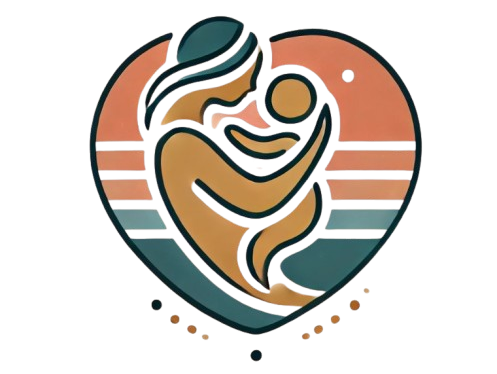Pregnancy Week by Week: Essential Tips for Every Trimester

Embarking on the journey of pregnancy is an exciting and transformative experience, yet it can often feel overwhelming. As your body undergoes remarkable changes, each week brings new developments and decisions. Understanding the nuances of pregnancy week by week and knowing the essential pregnancy tips for each trimester can be incredibly empowering.
In today’s fast-paced world, where access to information is abundant yet sometimes contradictory, having a reliable guide through the different pregnancy stages is more crucial than ever. Whether you’re a first-time parent or adding to your family, knowing what to expect and how to prepare can alleviate stress and enhance your pregnancy experience.
This article will equip you with the knowledge to navigate each trimester confidently. You’ll learn practical first trimester tips, discover second trimester advice, and explore a comprehensive third trimester guide. From understanding developmental milestones to evaluating the breastfeeding vs. formula pros and cons, we’ve got you covered every step of the way.
First Trimester Tips
The first trimester marks the beginning of a new life journey, with significant changes occurring both within your body and in the growing embryo. This period, encompassing weeks 1 to 12, can be particularly challenging due to symptoms like nausea, fatigue, and emotional fluctuations.
Navigating Early Symptoms
Morning sickness, a common complaint, affects approximately 70% of pregnant women. To mitigate this, try snacking on dry toast or crackers before getting out of bed. Staying hydrated and consuming ginger tea are also effective strategies. If symptoms persist, consult your healthcare provider for potential remedies.
Essential Nutritional Needs
In the first trimester, focus on consuming a balanced diet rich in folic acid, iron, and calcium. These nutrients are vital for fetal development. Incorporating leafy greens, lean meats, and dairy products can help meet these needs. Remember, your body is the baby’s primary source of nutrition, so prioritize healthy choices.
Building Emotional Resilience
Emotional health is as important as physical well-being. Engage in relaxation techniques such as prenatal yoga or meditation. Joining a support group can provide a sense of community and shared experiences, helping you manage the emotional highs and lows of early pregnancy.
Second Trimester Advice
Often dubbed the “honeymoon phase” of pregnancy, the second trimester (weeks 13 to 26) is when many women experience increased energy and reduced morning sickness. This period is ideal for deepening your understanding of pregnancy and preparing for the upcoming stages.
Understanding Fetal Development
During the second trimester, your baby grows rapidly. By week 20, you may start feeling fetal movements, a sign of your baby’s developing muscles and nervous system. Regular prenatal visits can track your baby’s growth and ensure everything is progressing normally.
Exploring Breastfeeding vs. Formula
As you plan for your baby’s arrival, consider the breastfeeding vs. formula pros and cons. Breastfeeding offers numerous health benefits for both mother and child, including enhanced immunity and bonding. However, formula feeding can provide flexibility and is a viable option for many families. Evaluate your lifestyle and preferences to make the best choice for you and your baby.
Staying Active and Healthy
Maintaining an active lifestyle is beneficial during the second trimester. Engaging in regular exercise, such as walking or swimming, can improve mood, enhance energy levels, and promote better sleep. Always consult your healthcare provider before starting any new exercise regimen.
Third Trimester Guide
The third trimester, spanning weeks 27 to 40, is the final stretch before meeting your baby. This period is characterized by continued fetal growth and preparation for childbirth, with various physical and emotional changes.
Preparing for Delivery
As you approach your due date, start preparing for the delivery process. Attend childbirth classes to learn about labor and delivery techniques, pain management options, and postpartum care. Creating a birth plan can also provide clarity and reduce anxiety.
Managing Physical Discomforts
In the third trimester, you may experience physical discomforts such as back pain, swelling, and sleep disturbances. Using a pregnancy pillow can provide support, while elevating your feet can reduce swelling. Consult your healthcare provider for personalized advice if symptoms become severe.
Finalizing Baby Preparations
Use this time to finalize nursery preparations, purchase essential baby gear, and pack your hospital bag. Having these items ready in advance can ease the transition into parenthood and allow you to focus on your newborn once they arrive.
For a more visual and interactive experience, explore our complementary video content that delves into each trimester with expert insights and practical demonstrations. Watching these videos can enhance your understanding and offer additional perspectives on navigating pregnancy week by week.

Frequently Asked Questions
What are the most important first trimester tips?
Focus on managing morning sickness with small, frequent meals and staying hydrated. Prioritize a diet rich in folic acid and iron, and engage in stress-reducing activities like yoga. Consult your healthcare provider for personalized advice tailored to your needs.
How can I stay active during pregnancy?
Engage in low-impact exercises such as walking, swimming, or prenatal yoga. These activities are safe and beneficial for both you and your baby. Always discuss any new exercise plans with your healthcare provider to ensure they align with your specific pregnancy needs.
What should I consider when choosing between breastfeeding and formula?
Consider factors such as health benefits, convenience, and lifestyle. Breastfeeding provides antibodies and promotes bonding, while formula offers flexibility. Evaluate your personal circumstances and consult with healthcare professionals to determine the best choice for your family.
How can I prepare for childbirth in the third trimester?
Attend childbirth classes to learn about labor and delivery options. Create a birth plan outlining your preferences and discuss it with your healthcare provider. Preparing mentally and physically can help reduce anxiety and ensure a smoother delivery experience.
What are some ways to manage third trimester discomforts?
To alleviate discomforts like back pain and swelling, use supportive pillows and elevate your feet. Stay hydrated, and practice gentle stretching exercises. If symptoms are severe, consult your healthcare provider for additional strategies and support.
Conclusion
Pregnancy is a unique and personal journey, with each week bringing new experiences and challenges. By understanding the pregnancy stages and applying essential tips for each trimester, you can navigate this transformative period with greater confidence and ease.
As you move forward, continue to prioritize your health and well-being, stay informed, and seek support from healthcare professionals and loved ones. Your proactive approach will not only benefit you but also foster a nurturing environment for your growing baby.
For further guidance, consider exploring topics such as the psychological impact of pregnancy, postpartum recovery tips, and creating a balanced postnatal diet. These resources can provide additional insights and support as you prepare for the exciting new chapter of parenthood.




